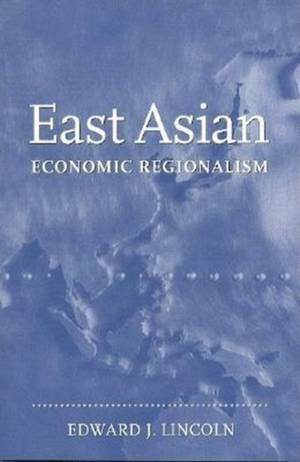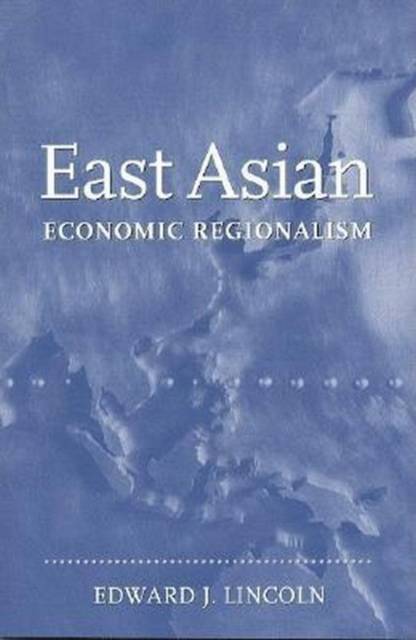
- Afhalen na 1 uur in een winkel met voorraad
- Gratis thuislevering in België vanaf € 30
- Ruim aanbod met 7 miljoen producten
- Afhalen na 1 uur in een winkel met voorraad
- Gratis thuislevering in België vanaf € 30
- Ruim aanbod met 7 miljoen producten
Omschrijving
Something new is happening across East Asia. A region notable for its lack of internal economic links is discussing regional cooperation on trade, investment, and exchange rates. Because of negotiations elsewhere around the globe on regional trade--such as those that led to the consolidation of the European Union, the formation of the North American Free Trade Area, and the rapid proliferation of bilateral free trade areas--the talk is not surprising. Nevertheless, East Asia's past inertia with regard to forming a regional partnership raises many questions about its emerging regionalism. Why has the region suddenly shifted from taking a global approach to economic issues to discussing a regional bloc? How fast and how far will the new regionalism progress? Will the region become a version of the European Union, or something far less? What is the probable impact on American economic and strategic interests--are the likely developments something that the U.S. government should encourage or discourage? Edward Lincoln takes up these questions, exploring what is happening to regional trade and investment flows and what sort of regional arrangements are the most sensible. Lincoln argues that an exclusive grouping is unlikely. Free trade negotiations have brought some economies in the region together, but they also have led to links with nations outside the region. Some regional governments most notably Japan, continue to have difficulty embracing the concept of free trade, even with favored regional partners. In the wake of the Asian financial crisis, governments also have looked at cooperating on exchange rates, but they have done little to move forward. The U.S. government must decide how to respond to these developments in East Asia. An exclusively Asian form of regionalism could run counter to American economic interests, and the U.S. government has reacted negatively to some of these proposals in the past. Because trade and investment links between the countries of the Asia Pacific region and the United States remain very strong, Lincoln argues that the Asia Pacific Economic Cooperation forum remains the appropriate institution for pursuing regional trade and investment issues.
Specificaties
Betrokkenen
- Auteur(s):
- Uitgeverij:
Inhoud
- Aantal bladzijden:
- 292
- Taal:
- Engels
Eigenschappen
- Productcode (EAN):
- 9780815752165
- Verschijningsdatum:
- 16/03/2004
- Uitvoering:
- Hardcover
- Formaat:
- Genaaid
- Afmetingen:
- 153 mm x 234 mm
- Gewicht:
- 589 g

Alleen bij Standaard Boekhandel
Beoordelingen
We publiceren alleen reviews die voldoen aan de voorwaarden voor reviews. Bekijk onze voorwaarden voor reviews.











